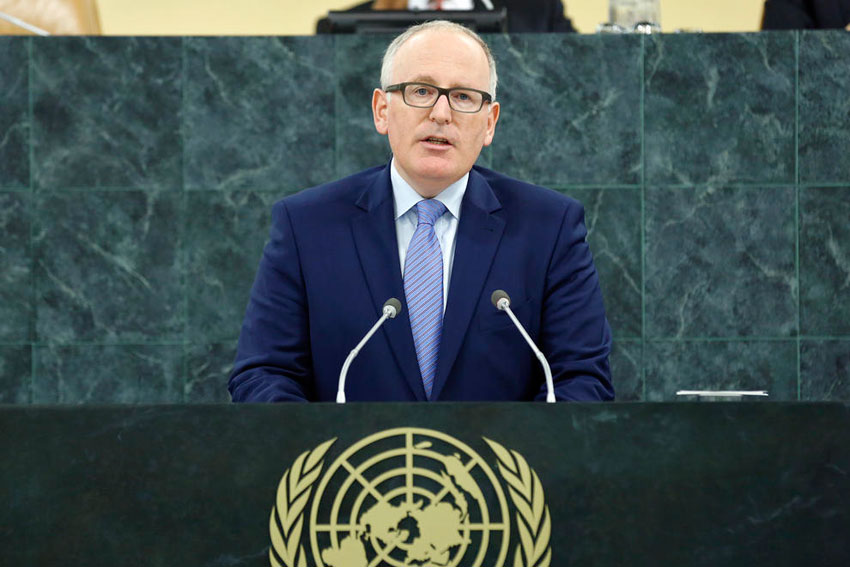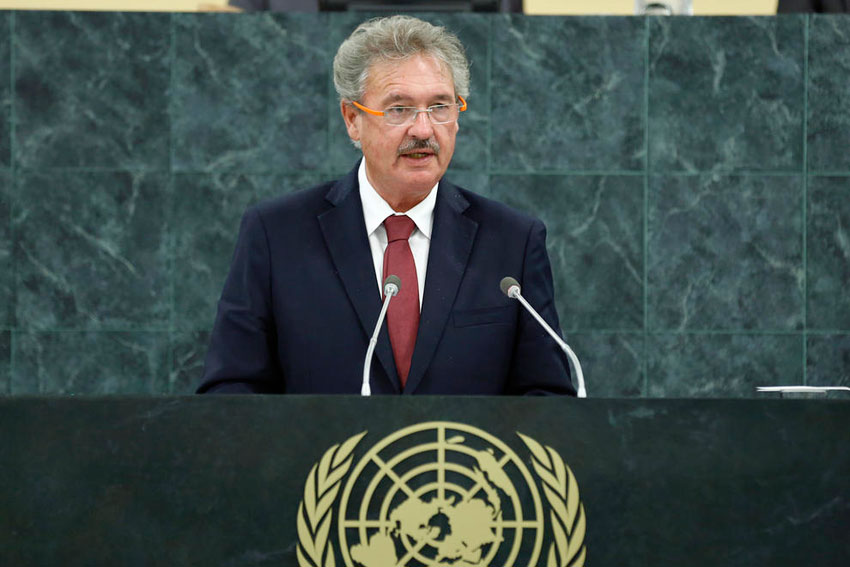Developed countries at UN say more trade can boost sustainable development
While covering a range issues, most strongly the need to end the carnage in Syria, fight terrorism and protect human rights around the world, particularly those of women and girls, the officials noted trade as an important component of sustainable development, which has been named as the priority for the 68th General Assembly session that recently opened.
“A strong business sector, open trading rules and liberal foreign investment policies can foster economic growth and, with this, opportunities to achieve prosperity and security,” said Australian Foreign Minister Julie Bishop, whose Government came into power just weeks ago.
“We will support responsible economic governance and open trading systems that support export oriented economies,” Ms. Bishop said, citing her county’s long experience with economic liberalization, as well as the huge recent growth of the middle class in neighbouring Southeast Asia.
“Beyond 2015, we must prioritise sustainable economic growth in the global development framework,” she added.
Earlier today, Secretary-General Ban Ki-moon, meeting with Ms. Bishop, discussed development in Syria and Egypt as well as Pacific issues and thanked Australia for its commitment to global peace and security, welcoming its recent assumption of the presidency of the Security Council.

Franciscus Cornelius Gerardus Maria Timmermans, Minister for Foreign Affairs of the Netherlands. UN Photo/Paulo Filgueiras
Also speaking at the General Assembly today, Foreign Minister Frans Timmermans, of the Netherlands, said that along with more trade, the “key words” for the post-2015 agenda are better aid and stronger, unified policy coherence for sustainable development.
“The post-2015 agenda will benefit from a single, unified framework: we cannot talk about the plight of the world’s poorest people in isolation from the environmental problems endangering life on the planet,” Mr. Timmermans stressed.
A coherent, sustainable agenda was to strengthen the international legal order, he added, with a focus on human rights. Speaking extensively on existing international legal mechanisms, some of which are hosted by his country, as well as on the situation in Syria, he supported the proposal that permanent members of the Security Council refrain from using their vetoes to stop mass atrocities.

Jean Asselborn, Deputy Prime Minister and Minister for Foreign Affairs for Luxembourg. UN Photo/Ryan Brown
The Deputy Prime Minister of Luxembourg, Jean Asselborn, agreed that the post-2015 objectives for sustainable development must be integrated in a single and coherent framework that include all aspects of economic, governance, security and environmental concerns.
“We cannot ignore the devastating effects of conflicts and violence on development,” he said, describing the destruction wrought in Syria and other situations.
Mr. Asselborn noted, that as a current, non-permanent member of the Security Council, Luxembourg had been working with September Council President Australia to support the demands of humanitarian actors in Syria.
“We must also talk - and more loudly so - about governance which is conducive to development, about institutions which guarantee the rule of law, about freedom of expression, about transparent and accountable governments. We must talk about justice, about the fight against impunity, about respect for international law.”
The General Assembly’s general debate continues at UN Headquarters through 1 October.

